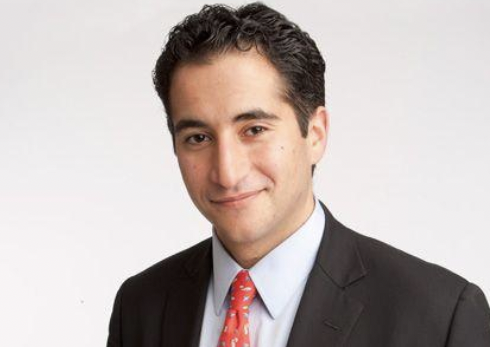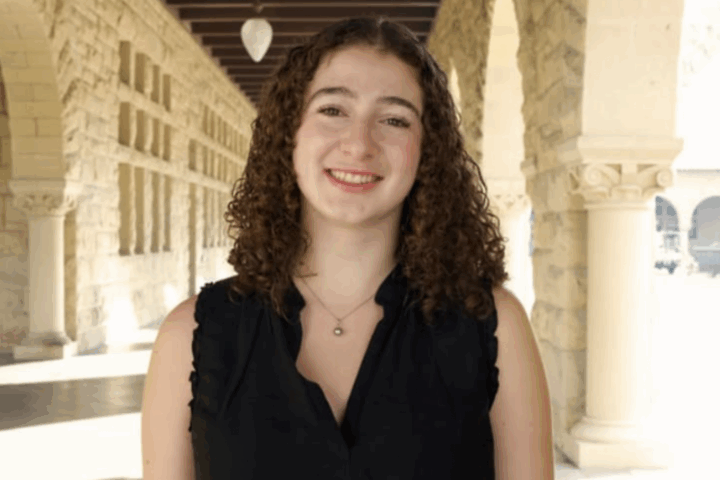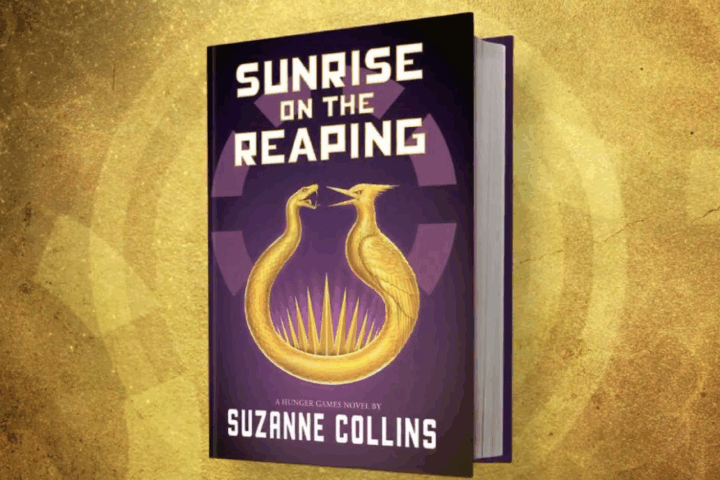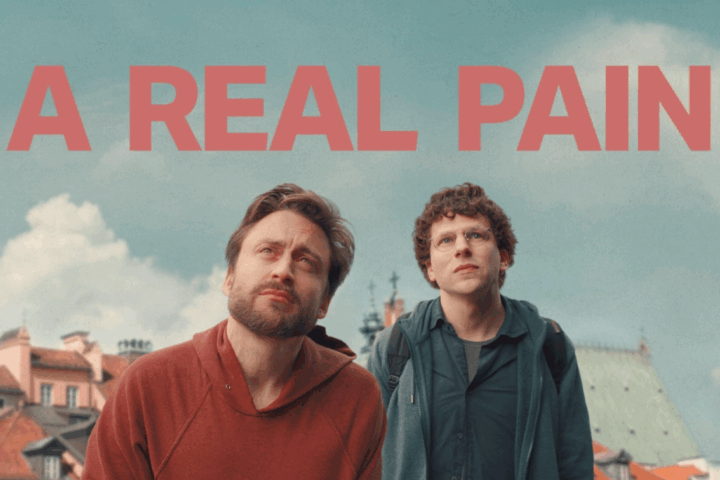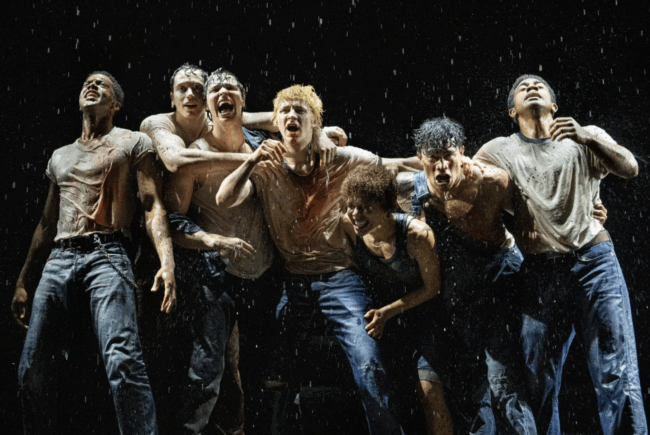“State government is this humongous hulking beast of a bureaucracy,” says Josh Vlasto, a Fieldston Alum and former chief of staff to New York State Governor Andrew Cuomo. And hardly anyone at Fieldston knows about it.
Vlasto has always had an interest in government and always knew he wanted to pursue a career in politics, “I was exposed to it at an incredible young age and it just seeped into my bloodstream as a calling and profession.”
He isn’t kidding. Vlasto’s political experience goes back all the way to his time at Fieldston. Vlasto was form representative here at Fieldston in 7th, 8th, 9th, 11th, and 12th grade — although he lost his sophomore year election in a race he still remembers to Sara Levine. Even in elementary school, he remembers taking a poll of his Ethical Culture first-grade classmates, asking who they planned to “vote for” in the upcoming mayoral election, Ed Koch or David Dinkins. At just 12 years old, he was answering phones and making copies for Bill Clinton’s presidential campaign. He credited Mr. Montera for being fundamental in helping him pursue his passion: “Nothing I’ve been able to do in any aspect of my career would have been possible without Bob… He taught me how to write, express my thoughts, and be critical. He gave me the confidence that I could do it, not just think about it or talk about it, but actually do it.”
After graduating from Fieldston he attended Cornell’s ILR school and absolutely loved it. It was the best place for him to be to get his hands dirty and study government. Immediately after graduating from Cornell, he moved to Washington, DC for an entry-level job at Senator Chuck Schumer‘s office. One of his primary responsibilities was to drive the senator around Washington when the primary driver was unable to. He worked his way up, into legislative aid for transportation and Homeland Security, but soon realized he belonged in the press office. He moved over to Schumer’s communications office and, “from the minute I got there, I knew it was absolutely the place for me.” Soon after, Schumer made him press secretary. “Getting into his press office,” said Vlasto, “was just a total crash course in political communications in the biggest media market in the world… Chuck wanted New Yorkers to know that he was front and center on all issues… So we were just constantly making announcements, dealing with reporters, and with crises in real-time, on the largest scale possible. I loved it.”
Vlasto was not only fond of his job but also has and had the utmost respect for his former boss, the senator. He said that Senator Schumer“ is, was and remains the smartest political practitioner in the country. As a leader, he has more feel for his constituency, for the news, and for other politicians than anyone… He’s just the hardest working guy and he instilled in us a relentless work ethic.”
Vlasto made it clear that Senator Schumer is involved in each and every issue that comes across his desk. Vlasto said, “He was involved in everything… So many senators and politicians just focus on the big stuff… But Chuck focuses on the big stuff while never losing sight of the seemingly little issues he can have an impact on.”
Of many possible examples of Schumer’s dedication, Vlasto gave one from March of 2007. On March 14, 2007, two auxiliary NYPD police officers, Eugene Marshalik and Nicholas Pekearo, were shot and killed while on duty. The two auxiliary officers were not going to get federal death benefits, that are given to law enforcement and first responders who are killed in the line of duty, because they were not full police officers. Vlasto learned of this while reading the Daily News and then sent the article to Senator Schumer to see what they could do about it. They held a press conference with Police Commissioner Kelly and the parents of the slain officers, calling on the Bush administration to grant them the benefits. Vlasto recalls a conference call with Senator Schumer and the acting Attorney General who told them that the law is the law and that they would not grant the benefits. Vlasto remembers Senator Schumer saying, “No, that’s the wrong answer.” As aforementioned, there was an acting Attorney General and Senator Schumer was on the judiciary committee that confirms Attorney General nominees and thus, when George Bush nominated Alberto Gonzalez to be the Attorney General, Senator Schumer was quick to ensure that the officers would get what they deserved. Vlasto recalls Senator Schumer calling him into his office and telling him that Alberto Gonzalez was coming in and then Senator Schumer said “I’m not going to vote for his confirmation unless he promises that on the first day he will approve the benefits.” Vlasto told me that there was so much going on about Gonzalez, it was a huge story about him being close to Bush, these macro-macro issues and he said, “What’s Chuck focused on? Those two guys.“ So, of course, Gonzalez says yes and on day one it’s done.
After six years at the Schumer office, Vlasto, “was ready for something new.” And so, when the New York State Attorney General Andrew Cuomo decided to run for governor in 2010, Vlasto became the press secretary for Cuomo‘s 2010 campaign for governor.
Cuomo was keen on beating Republican opponent Paladino (“a Trumper before there were Trumpers”) on everything: “Andrew said we’re gonna beat him in politics, press, policy, fundraising… Everything.” And they did — Vlasto and the rest of the campaign visited all 62 New York counties in an RV campaigning and going to fairs. Vlasto loved it all. “ It was perfect for me, I got to know him and I got to know the team… Things really came together and we ran a great campaign.” Cuomo was elected in November and appointed Vlasto Deputy Communications Director.
Vlasto noted there were immediate differences between the Schumer and Cuomo offices. He explained, “It was night and day…I had a deep understanding of the state and politics coming from Chuck but was very unfamiliar with the Albany machinations, how Albany worked, and the power dynamics of Albany.
Vlasto is often asked, “How does Albany work and how is it structured?” He explains, “How it’s structured and how it operates are two very different things. You have a governor and the New York governor is very powerful compared to the other 49 states.… They have the power of the budget itself and the governor can put in the budget whatever they want and can advance their agenda that way.” The governor is also the chief dispenser of patronage. In terms of the way it is structured he explained “ You have a governor and then you have two legislatures, just like the house and senate, you have the assembly and the state Senate. So you have a very left-leaning legislature and then you have a governor and a lieutenant governor and a comptroller who is essentially the state auditor and their role is to approve all contracts and vet the financial plan… They’re sort of the outside financial watchdog but they’re still state elected officials. There’s an attorney general and Court of Appeals and it’s one of the most powerful courts in the country.”
“I think the thing people forget about state government, because it’s in that far-off distant place called Albany, is that it’s unbelievably powerful and, while most of the focus is on New York City politics, the city is just one of 7,000 other cities.”
Vlasto’s mention of the 7000 cities in the state prompted a question of mine: “How does the Governor make sure that he’s focusing on all the districts rather than just this one massive city that’s the most populated?”
Vlasto replied, “It’s an incredibly challenging managerial exercise which is why you have such a large state government. The political base mathematically is in the city and in the suburbs. From a political exercise, if you take the easy way out you can really focus on the city and stay close, but, thankfully, none of our Statewide elected officials do that; you have Chuck who’s completely focused everywhere and is dedicated to visiting all 62 counties and we have our first governor who is from upstate in 150 years: Kathy Hochul is from Buffalo so she’s very focused on Upstate and very committed to Upstate growth, economic development, and tourism.”
After establishing some of the ins and outs of State government, Vlasto talked in depth about his time working with Cuomo. He told me when started working, there were two seminal issues. The first was handling broader government dysfunction and the second was marriage equality.
Marriage equality had originally failed in state government but was starting to gain momentum again. There had been some public referenda in other states but no other state at that point had a political process to lead to its passing. The first thing on Governor Andrew Cuomo’s plate was passing marriage equality. Vlasto knew Cuomo was determined. He knew this was the barometer for success, and that they had to get marriage equality done within their first year.
Vlasto told me that the governor was able to reach an agreement with the Republican majority leader, Dean Skelos, who was a moderate Republican from Long Island. “[Cuomo] said ‘Look, Dean, I want you to put this on the floor, and if I don’t get the votes I don’t get the votes.’” Cuomo needed three Republican votes in addition to all the Democrats. They reached a deal that was all power politics.
But Vlasto emphasized that the Governor would make sure the Democrats stay in line and don’t criticize Dean Skelos so that it would not become a partisan fight. According to Vlasto, the Governor said “We don’t malign you or your members for voting against it, we’re going to do this in a professional way and I’m going to try and find a way to get three of your members to come across and vote with us but we’re not going to demonize you in the process. I’m going to do this in a professional way and you have my word that if Democratic legislators and Senators go off on a tangent I’m going to reel them back in.”
Vlasto says that this was essential, because, over the 3 months of the legislative session, the governor was methodically able to move three Senators across one by one so they would vote for it. On the day of the vote, one Democratic senator got up and began criticizing the Republicans and Dean Skelos called Governor Cuomo and said “I’m pulling it.”
The governor told him to sit tight, and then called the lieutenant governor who was on the podium and said, “Don’t let him close the vote, we’ll get it.” The Democratic senator stopped criticizing them and the bill passed. It was a monumental accomplishment for the state.
Vlasto says ” I remember that night, there was a party at the mansion and the next Saturday was the Gay Pride Parade. That night I said to the governor, ‘I think this is going to be a bigger deal than we thought it was, there are 15,000 people in Washington Square Park celebrating this right now. Do you know your press conference was broadcast all around the world? I think we might not have quite understood what a big deal this was.’ So that Sunday we went to the pride parade and it was incredible. It was just 2 million people absolutely losing their minds. There were people stopping and proposing in the streets. It was one of the most powerful moments I’ve ever experienced.”
After telling me this incredibly powerful story, Vlasto shared experiences of less monumental days working for the governor. Vlasto said it really mirrored the governor’s day: they had a schedule for the week but it would usually be thrown out pretty quickly based on events that would arise and need addressing.
To provide a vignette into what it was like, Vlasto told a story that captured both the governor’s character and also what the job looked like. He told me that there was a flood following a rain storm upstate that washed out Route 73, which was a road that’s essentially the main artery into the Adirondacks. It was getting into springtime and that’s peak tourism season. If you don’t have the main artery to the Adirondacks, the whole economy up there is going to get hit. Vlasto told me that he was sitting in the Governor’s office and the governor called in the transportation commissioner and asked when Route 73 would reopen. The commissioner told him it would be a month, and the governor said this was unacceptable. So he got the contractor on the phone and said he wanted it open next week: “You’re gonna get this done, if you need anything call me directly and I will get it done for you, but if you don’t get this done there’s no more contracts for you from New York State.” Three days later Governor Cuomo and Vlasto traveled upstate and Route 73 was reopened. He says this teaches the power of government, some might say that was mean of the governor, but in his view, it was a way to get the job done for the entire community and economy up there.
Vlasto shared another story about Chobani yogurt and small-town politics. Chobani yogurt had a plant west of Albany and the plant was on the geographical divide between two towns. There was a pipe that broke and the municipalities were fighting about who was responsible for fixing the pipe and apparently, it had been going on for weeks. The CEO of Chobani called the governor and said that if he couldn’t get the two mayors to figure out who would fix the pipe, he would have to leave and move his plant elsewhere, taking the jobs with him. The governor said, “Nobody’s leaving, don’t worry.” He called Vlasto into his office and he said “Let’s have some fun.” He told his assistant to call the mayors and he was informed that they couldn’t be found. So the governor said, “Get the state police to find them and get them on the phone.” Once he had them on the phone he patched the mayors and the CEO together into a conference call and he told them that they would speak with the CEO right now and come to a resolution and promise that the pipe would be fixed by the end of the week. And they got it fixed. Vlasto said, “You asked what it’s like in state government and that’s what I enjoyed about it, and that’s the power that the governor has, it’s crisis management and it’s getting things done rather than letting roads like Route 73 sit there for months, just get in there and solve the problem and that’s what the governor taught us.”
As the conversation came to a close, I asked him a question that Mr. Montera had stressed the importance of prior to our conversation: “What do you think the top issues facing New Yorkers are today?”
Vlastos thinks that general partisanship is going to become more of a problem than we think it is in New York State. “People think we’re just a Democratic state and we are without a shadow of a doubt, but I think there’s a rise of dysfunctional partisanship that could hurt us long term and we can go back to the bad old days of not getting anything done.”
So I asked him, “How did you and do you navigate working with people who don’t share your views?”
Vlasto said that he always found that part of the job to be fun. And that he doesn’t mind working with people with whom he disagrees, as long as they are civic-minded and rational. He says the idea that you should completely shut out the other side means that you are not civic-minded and you don’t care about outcomes. He says that he has seen an increase in people, in both parties, who are more focused on fighting with the other side than they are on the work that is to be done. He’s found in his experience that if you go in with good ideas and a willingness to compromise, you can get things done. He says there’s a difference between being political and being partisan and that neither of his former bosses ever had any issue working with the other side.
Vlasto ended by sharing that his hope for our particular community here at Fieldston is that, “if you are committed, civic-minded and talented, you [can] go into government and you can get things done if you really stay focused.”

